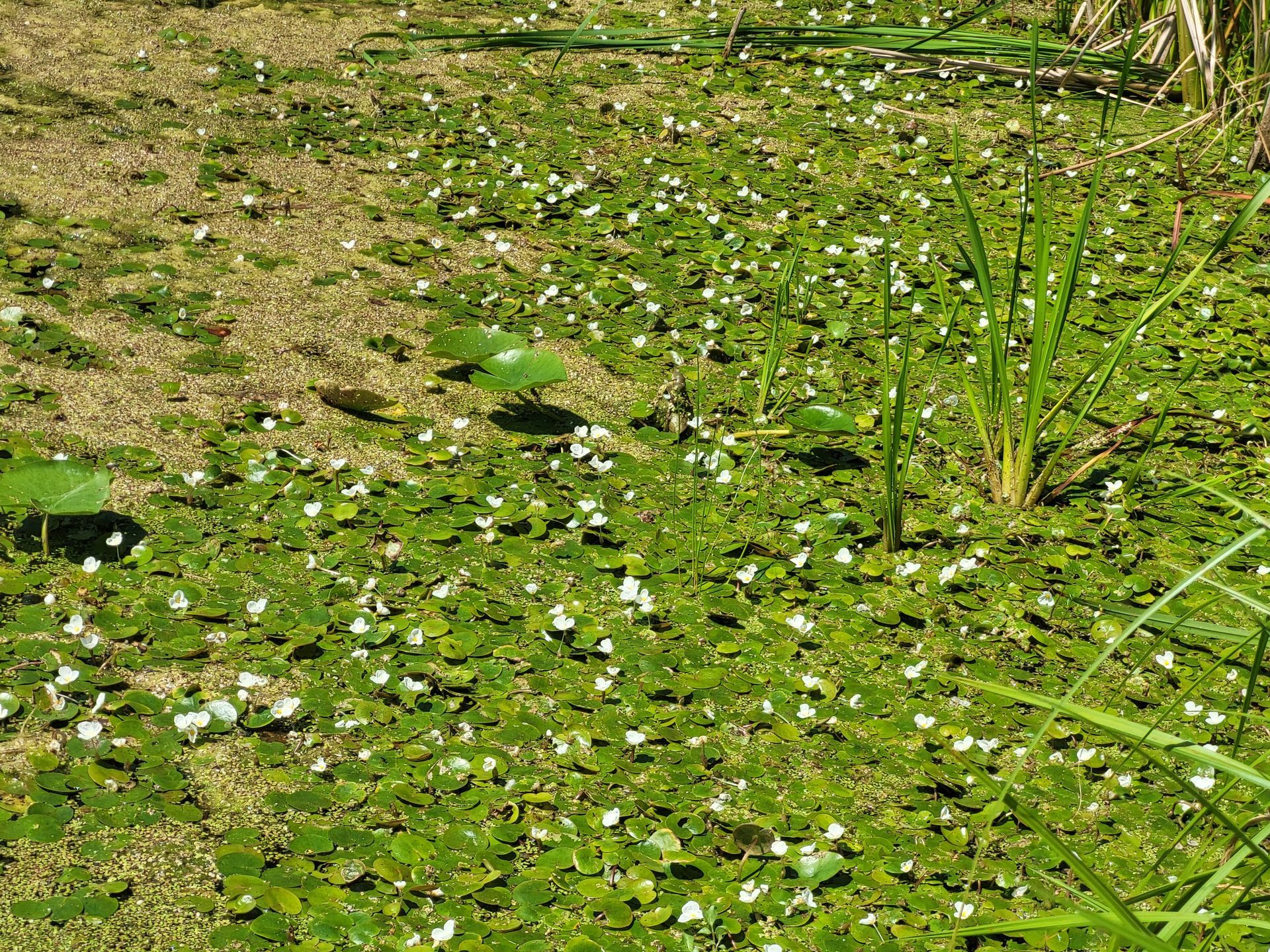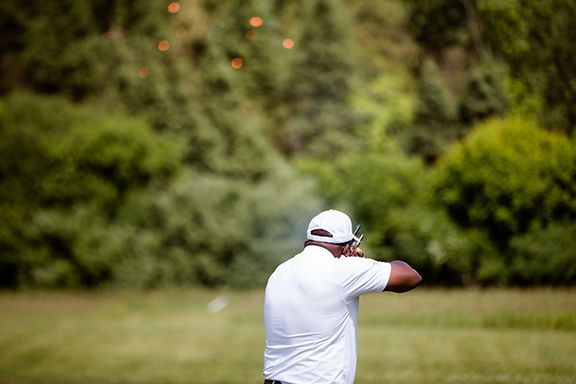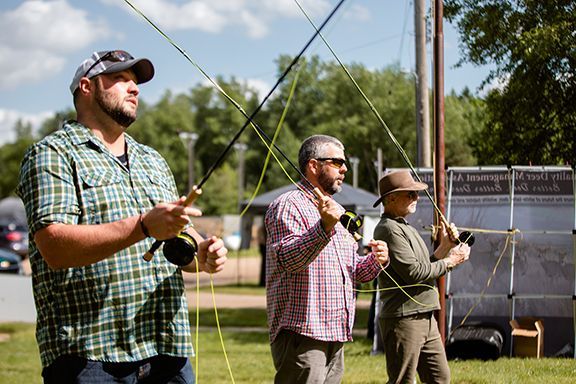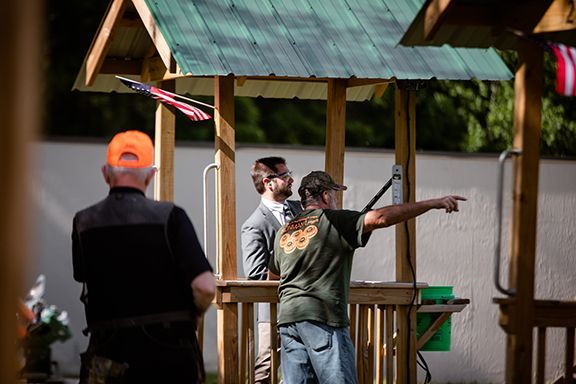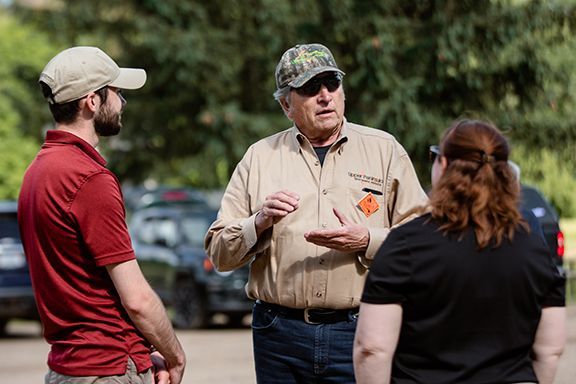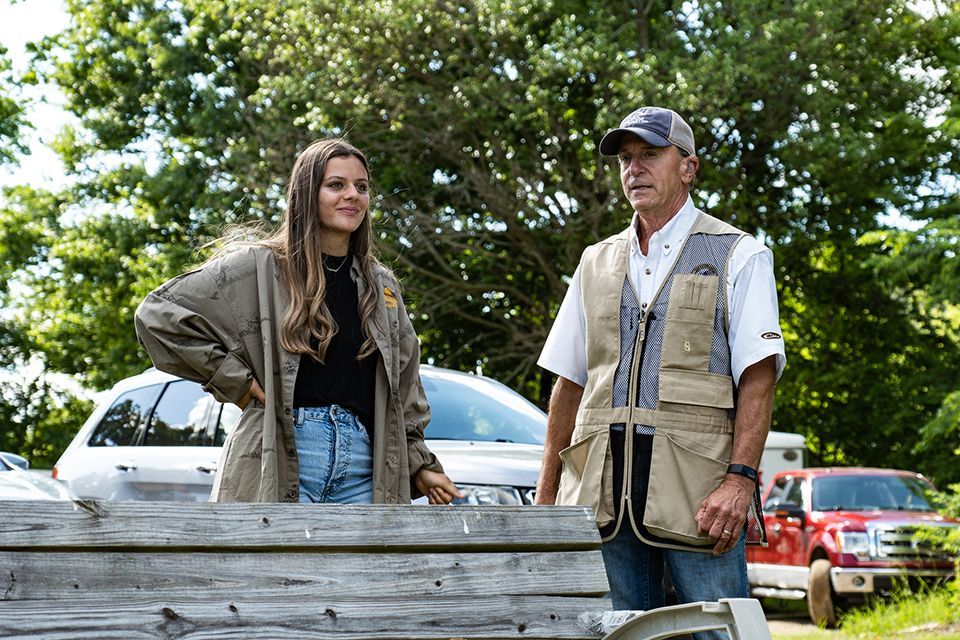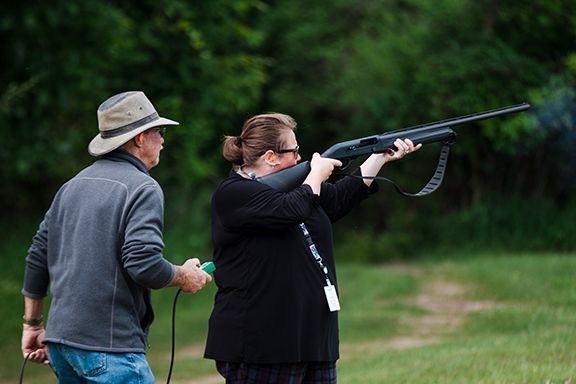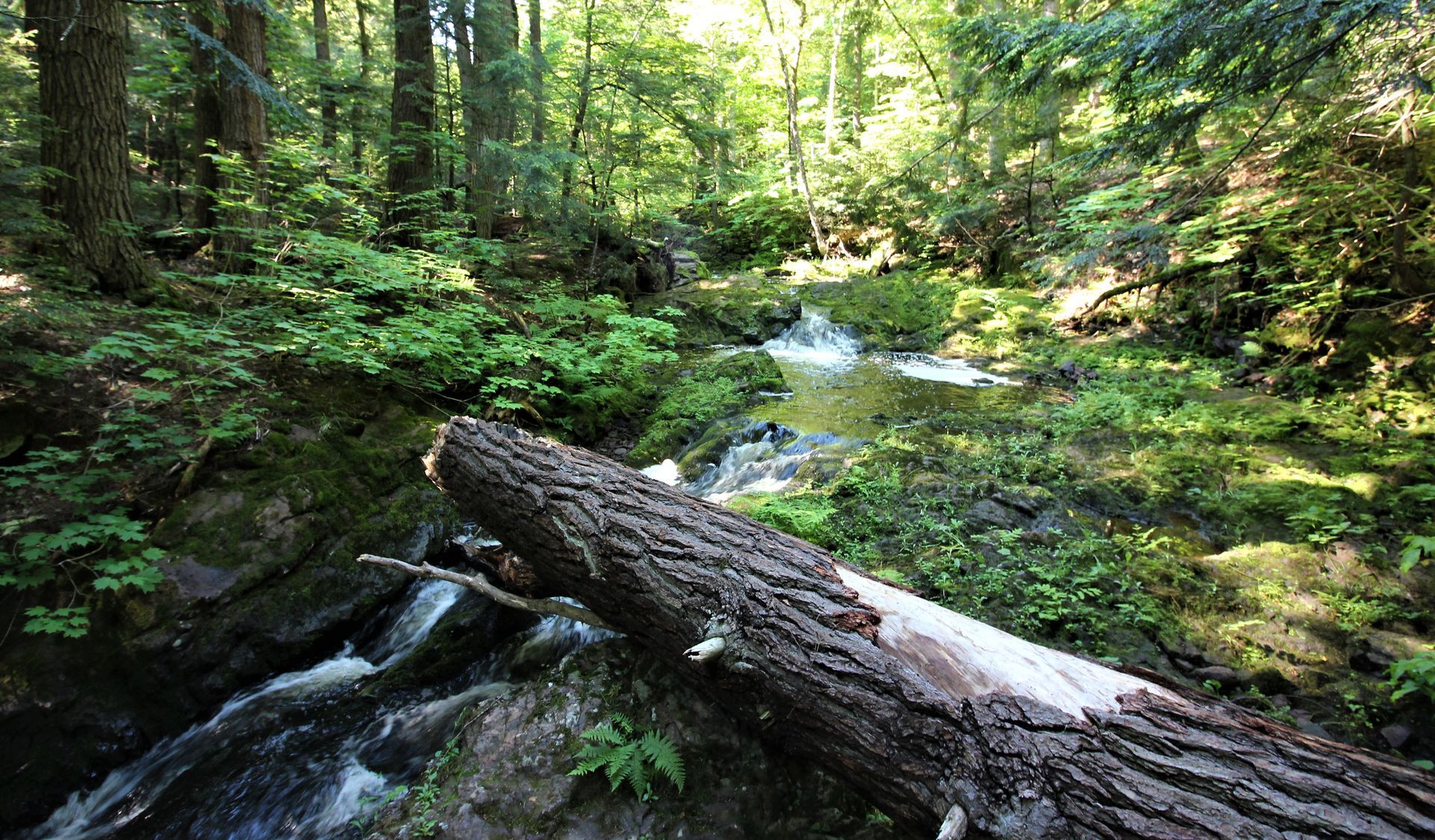Advisory council educating lawmakers through hands-on conservation experiences
Event aims to inform, engage and introduce legislators to Michigan’s conservation organizations and their missions
Legislators and staffers broke clays, cast fly rods, watched trapping demonstrations and learned about conservation at the annual Afternoon Outdoors Tuesday.
Hosted by the Michigan Legislative Sportsmen’s Caucus Advisory Council (MLSCAC) since 2017, the event is meant to help legislators have hands-on experiences with fishing rods, wildlife taxidermy, firearms, archery and trapping. More importantly, they are able to meet the non-governmental organizations carrying out conservation in Michigan.
Conservation has proved vital to building consensus during polarizing times, said Amy Trotter, Michigan United Conservation Clubs (MUCC) executive director and chair of the MLSCAC.
“Conservation reaches each and every Michigander in a different way, and helping legislators understand who the partners are, what their missions entail and what work is to be done is critical,” Trotter said.
The Michigan Hunting Dog Federation passed out hats and allowed legislators to interact with several breeds of hunting dogs. Michigan Trout Unlimited helped legislators cast fly rods and yarn towards hula hoops, and MUCC helped teach legislators to cock, knock and shoot crossbows.
Franklin Hayes, a recent Gov. Whitmer appointee to the Michigan Wildlife Council and a deputy chief of the Detroit Police Department, said helping Michiganders who don’t hunt or fish understand the value of conservation and the shooting sports is what he hopes to accomplish.
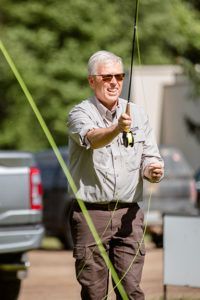
Erik Schnelle with the National Deer Association casts a fly rod during the Afternoon Outdoors event.
“Through hands-on experiences, we can help inform the narrative surrounding conservation, hunting, trapping, angling and the shooting sports,” Hayes said. “It is going to take all of us as a community to broaden our tent, engage new demographics and drive 21st-century conservation.”
Rep. Sarah Lightner (R-Springport) said the sportsmen’s caucus is vital to helping Republicans and Democrats better connect with their constituents who hunt, fish, trap and shoot.
“The advisory council to the caucus is a vital resource in helping legislators understand conservation issues and their impacts,” Lightner said. “This event can be the catalyst for legislation or understanding why certain policies run contrary to the conservation mission.”
Dinner followed with Steve Sharp, recently retired from the National Wild Turkey Federation, being recognized for his service to conservation by Rep. Anglea Witwer (D-Delta Twp.).
“Receiving this award in front of my friends and the conservation community is an honor,” Sharp said. “I’ve shared many memories with legislators and all of you that I won’t forget.”
Conservation organizations represented included MUCC, Trout Unlimited, Ducks Unlimited, Safari Club International, National Wild Turkey Federation, the Michigan Hunting Dog Federation, Ruffed Grouse Society, Straits Area Sportsmen’s Club, National Deer Association, Michigan Trapper and Predator Callers, Pheasants Forever, the Nimrod Society, Congressional Sportsmen’s Foundation and the Hal and Jean Glassen Foundation.
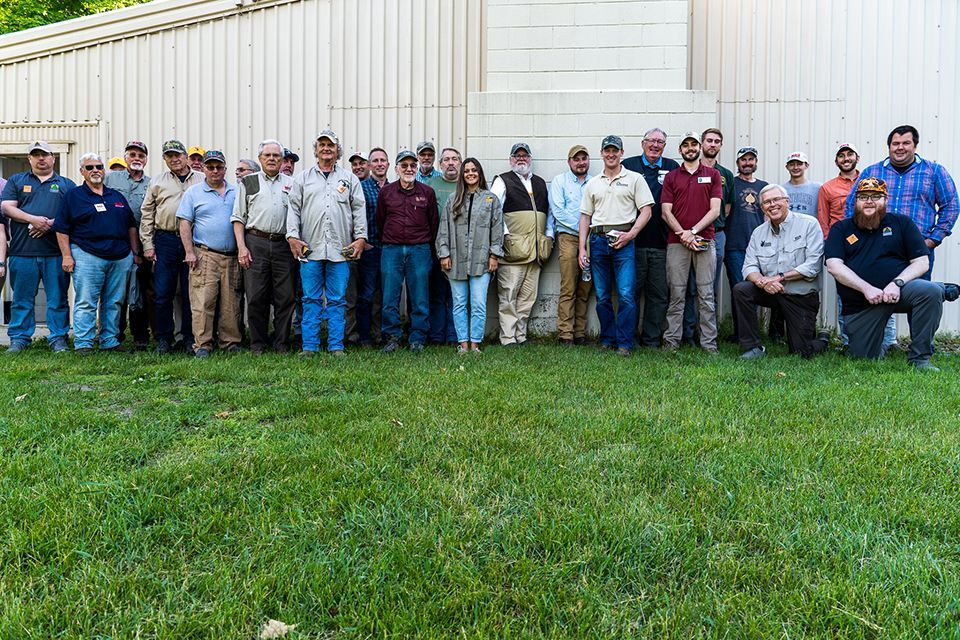
The conservation organizations represented at the Afternoon Outdoors event pose before cleaning up and heading home.
The post Advisory council educating lawmakers through hands-on conservation experiences appeared first on Michigan United Conservation Clubs.
Recent Posts
